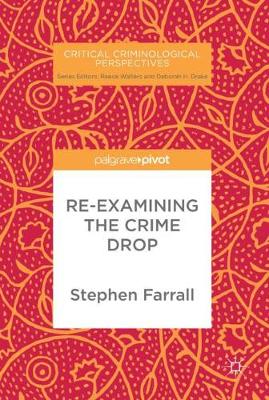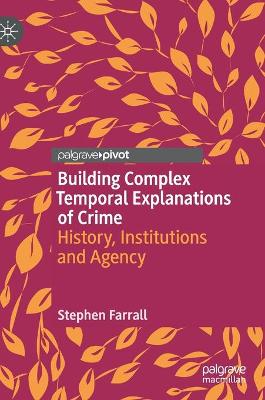Critical Criminological Perspectives
2 total works
The crime drop is one of the most important puzzles in contemporary criminology: since the early-1990s many countries appear to exhibit a pronounced decline in crime rates. While there have been many studies on the topic, this book argues that the current crime drop literature relies too heavily on a single methodological approach, and in turn, provides a new method for examining the falling rates of crime, based on ideas from political science and comparative historical social science. Farrall's original new research forwards an understanding of trends in crime and responses to them by questioning the received theoretical assumptions. The book therefore encourages a 'deepening' in the nature of the sorts of studies which have been undertaken so far. Firmly grounded in Political Science, this innovative study is a must read for scholars of Critical Criminology, Criminological Theory, and Politics.
This book seeks to bring understanding of both complexity and temporality into criminology. It outlines why these are important in criminological models of causation and explanation and explores them by drawing on theories and approaches in political science, comparative history, social theory and systems analyses. It discusses what is meant by complexity and introduces historical institutionalism (which is rarely used in criminology) to criminological audiences; it introduces what is known as ‘why-because’ analyses to the social sciences. This style of thinking is used to explore the causes of major transportation accidents (such as aeroplane or ferry disasters) and involves the integration of structural, organisational and agentic inputs in accounting for such disasters. Chapters on realistic evaluation, theories of structuration and agency, and research design and research methods are included with an example project based on the author's recent studies of Thatcherism which shows how these theories can be applied to empirical data. This book speaks to those interested in criminology, sociology, political science, research methods and the wider social sciences.

